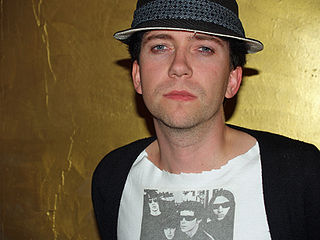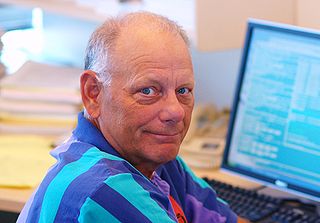A Quote by Alan Kay
The idea that hardware on networks should just be caches for movable process descriptions and the processes themselves goes back quite a ways. There's a real sense in which MS and Apple never understood networking or operating systems (or what objects really are), and when they decided to beef up their OSs, they went to (different) very old bad mainframe models of OS design to try to adapt to personal computers.
Quote Topics
Adapt
Apple
Back
Bad
Beef
Computers
Decided
Descriptions
Design
Different
Goes
Hardware
Idea
Just
Just Be
Mainframe
Models
Networking
Networks
Never
Objects
Old
Operating
Operating System
Operating Systems
Personal
Personal Computers
Process
Processes
Quite
Real
Really
Sense
Should
Systems
Themselves
Try
Understood
Up
Very
Ways
Which
Related Quotes
Every disruptive innovation is powered by a simplifying technology, and then the technology has to get embedded in a different kind of a business model. The first two decades of digital computing were characterized by the huge mainframe computers that filled a whole room, and they had to be operated by PhD Computer Scientists. It took the engineers at IBM about four years to design these mainframe computers because there were no rules. It was an intuitive art and just by trial and error and experimentation they would evolve to a computer that worked.
I don't really care about labels that much. I wouldn't really call our music retro. There are influences of things from the past, which there is in everything. I think we're quite a modern band, actually. We don't record with old equipment. We use computers and programmed drums. We don't use any guitar amplifiers. We're very much a modern band in the sense that we love computers and what they can do to music. I guess we're just good at a different sound.
My first operating system project was to build a real-time system called RSX-11M that ran on Digital's PDP-11 16-bit series of minicomputers. ... a multitasking operating system that would run in 32 KB of memory with a hierarchical file system, application swapping, real-time scheduling, and a set of development utilities. The operating system and utilities were to run on the entire line of PDP-11 platforms, from the very small systems up through the PDP-11/70 which had memory-mapping hardware and supported up to 4 MB of memory.
Today we understand that reality corresponds to a model - or, even better, the sum of various models - which in science are termed "complex systems" - not complicated or difficult, that's a different thing! This complexity is what creates that which we all know - the World - is connected in a system of networks - and I'm not referring only to the internet but also to thousands of analog networks in which we are all immersed at every instant.
I really, really like interior design. I grew up in a really old house outside of Philly that was built in 1821. My mom is really into antiques, and my dad is very mid-century. They're not together anymore, so in the middle of growing up, I, all of the sudden, had two houses that were very different but really well done in each of their own ways.
UNIX has a philosophy, it has 25 years of history behind it, and most importantly, it has a clean core. It strives for something - some kind of beauty. And that's really what struck me as a programmer. Operating systems that normal home users are used to, such as DOS and Windows, didn't have any way of life. Nobody tried to design Windows - it just grew in random directions without any kind of thought behind it. [...] I don't think Microsoft is evil in itself; I just think that they make really crappy operating systems.
In the collaborative process, you create a real intimacy; everybody ends up sharing personal stories and personal observations and their philosophies, their psychological side. By the time you get to set, it just creates such a sense of trust and intimacy between the director and the actors. It's really, really great.
I think there's confusion around what the point of social networks is. A lot of different companies characterized as social networks have different goals - some serve the function of business networking, some are media portals. What we're trying to do is just make it really efficient for people to communicate, get information and share information.




































